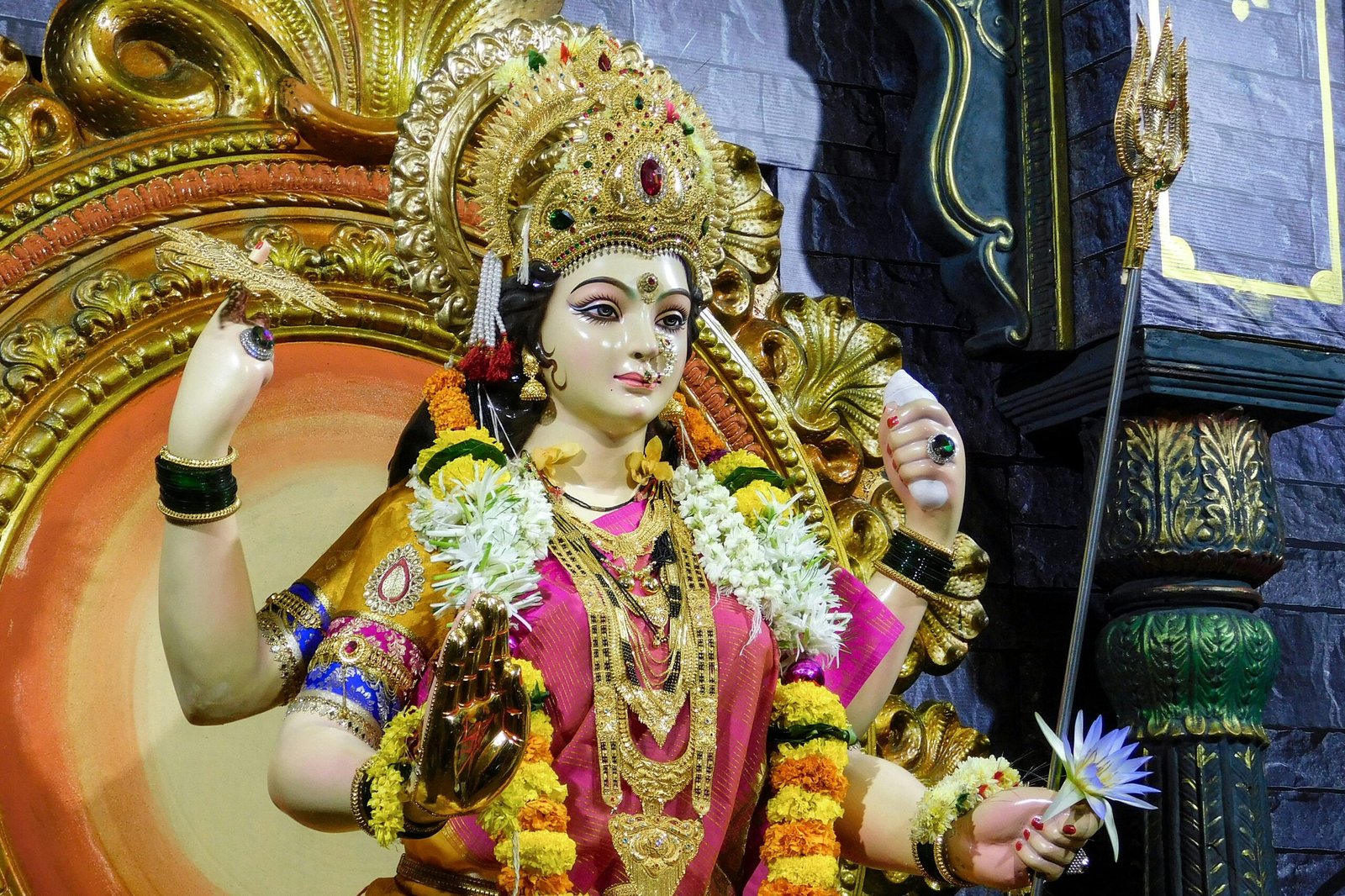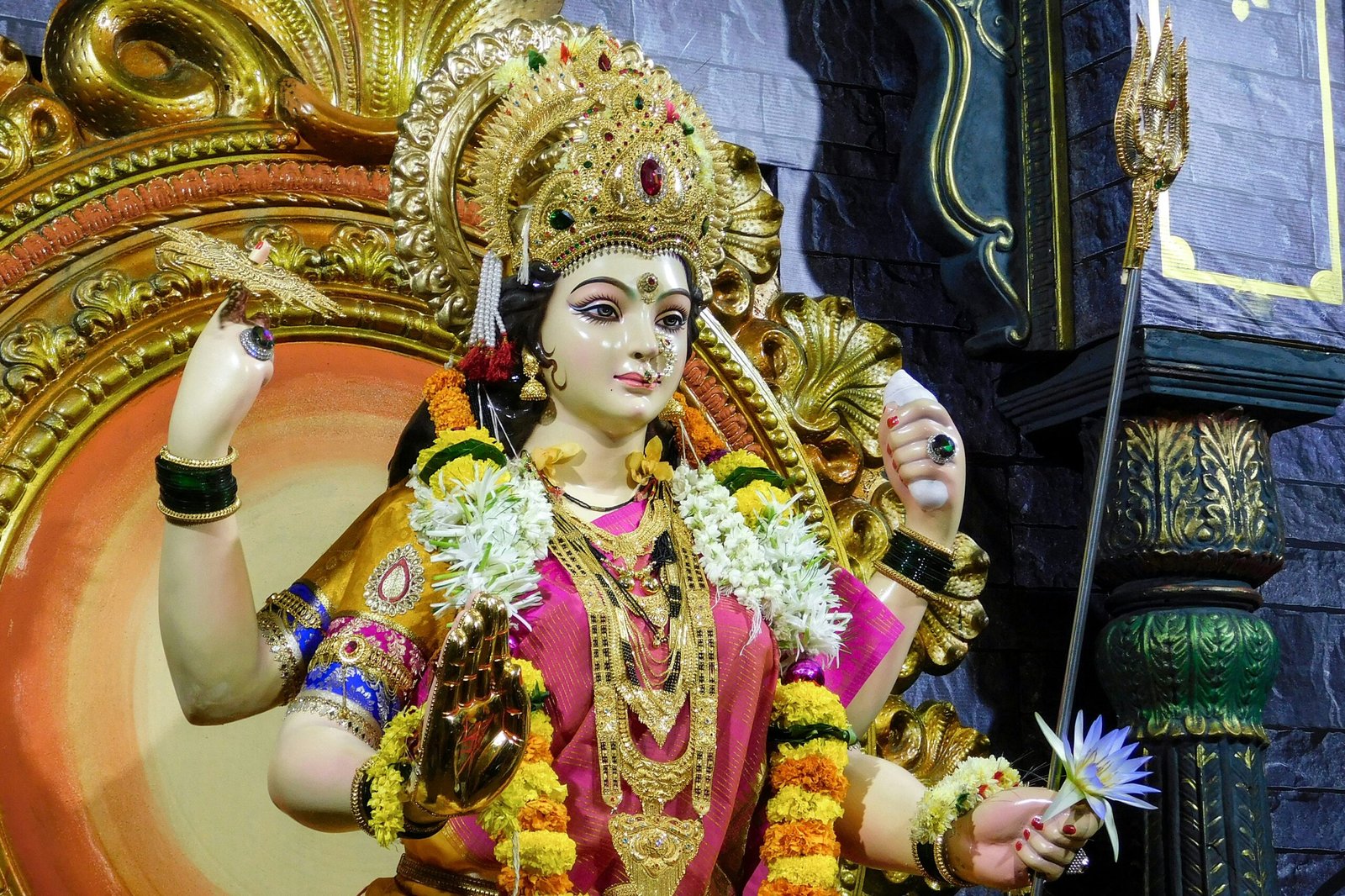
Introduction to Shree Suktam
Shree Suktam is an esteemed hymn dedicated to Goddess Lakshmi, who symbolizes wealth, prosperity, and well-being in Hinduism. This revered hymn is often recited during various ceremonies and rituals, highlighting its essential role in the spiritual practices of devotees. Originating from the ancient Vedic texts, Shree Suktam is deeply rooted in the Rigveda, one of the oldest and most sacred scriptures of Hinduism. Its verses are a poetic and spiritual invocation, seeking the blessings and favor of Goddess Lakshmi.
The structure of Shree Suktam comprises fifteen verses, each meticulously crafted to invoke the divine presence and benevolence of Goddess Lakshmi. These verses praise her attributes, describing her beauty, grace, and the abundance she bestows upon her devotees. The thematic focus of Shree Suktam is on seeking prosperity, harmony, and happiness, making it a vital part of rituals aimed at material and spiritual fulfillment.
Linguistically, Shree Suktam is a masterpiece of devotional literature. It employs rich poetic elements, such as alliteration, metaphors, and rhythmic patterns, which enhance its recitative appeal. The hymn’s language is Sanskrit, revered for its precision and spiritual potency. Each verse is imbued with profound meaning, reflecting the deep veneration for Goddess Lakshmi in Hindu culture.
Shree Suktam’s significance extends beyond its literary beauty; it is a powerful tool for spiritual elevation. Devotees believe that reciting Shree Suktam with devotion and sincerity can attract the divine energies of Goddess Lakshmi, leading to material prosperity and inner peace. The hymn’s enduring popularity and reverence in Hindu worship underscore its integral role in the cultural and spiritual fabric of the tradition.
Shree Suktam in Festivals and Rituals
The Shree Suktam holds a pivotal role in various Hindu festivals and rituals, particularly those dedicated to Goddess Lakshmi, such as Diwali and Navaratri. During Diwali, the festival of lights, households across India resonate with the rhythmic recitation of Shree Suktam, invoking the blessings of Goddess Lakshmi for prosperity and well-being. Similarly, during Navaratri, a nine-night festival dedicated to the divine feminine, the chanting of Shree Suktam is a common practice, especially on the day of Lakshmi Puja. The recitation is believed to be a conduit for divine grace, inviting abundance and success into the lives of devotees.
Traditionally, the Shree Suktam is recited with great devotion and precision. The proper method of chanting involves a clear enunciation of each mantra, maintaining a steady rhythm and tone. Devotees often perform the recitation during specific times of the day, such as dawn or dusk, which are considered auspicious for spiritual practices. The benefits of reciting or listening to Shree Suktam extend beyond material gains. It is believed to purify the mind, elevate the soul, and create a harmonious environment. The vibrations generated by the recitation are thought to attract positive energies, fostering an atmosphere of peace and contentment.
Historically, the Shree Suktam has been revered for its spiritual potency. Anecdotes from ancient texts and contemporary experiences alike highlight the transformative impact of this sacred hymn. Devotees have reported feelings of inner peace, clarity, and empowerment following the recitation of Shree Suktam. The psychological impact is equally profound, as the hymn’s soothing cadence and uplifting themes promote mental well-being and resilience.
Incorporating Shree Suktam into daily worship can be a rewarding practice. Devotees might choose to recite it during their morning prayers or before important events to seek divine guidance and blessing. Additionally, integrating the hymn into personal spiritual routines, such as meditation or mindfulness practices, can enhance one’s spiritual journey, fostering a deeper connection with the divine and an enriched sense of purpose and fulfillment.



